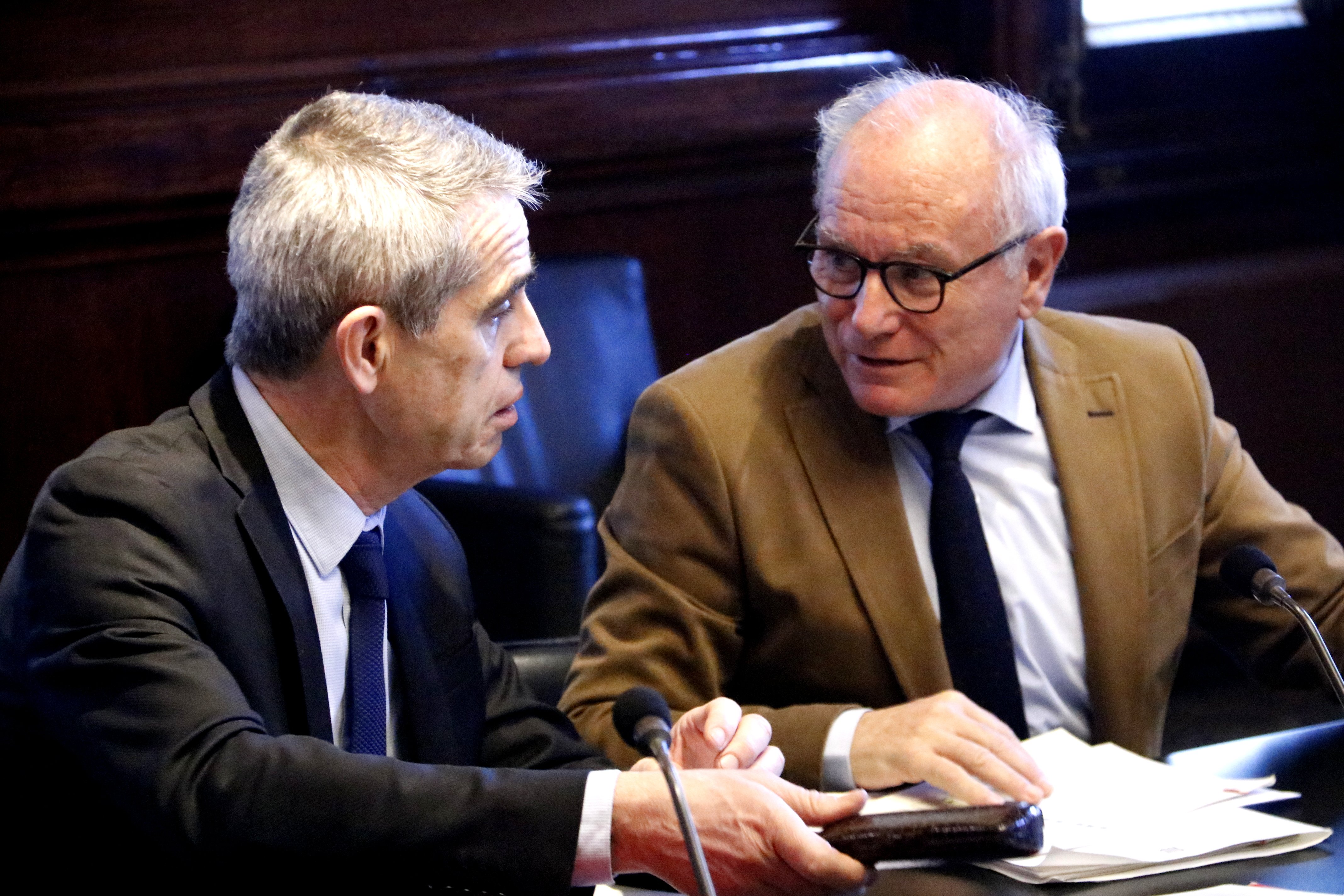A report from the Catalan Parliament's lawyers, released this Friday lunchtime, keeps the clock stopped on investing a president of Catalonia. As a consequence of the Spanish government's legal challenge, and awaiting a final decision by the Constitutional Court, they believe the 10-day time limit after the constitution of the new Parliament to present a first candidate for an investiture debate remains suspended. If that time limit were to elapse with no candidate being presented, or a candidate were to be presented, but fail to win enough votes, and then another two months were to elapse with no-one successfully being voted president, the chamber would be automatically dissolved and new elections called.
The report, requested by all the parties represented in the Parliament, has taken 10 days to arrive. Whilst the lawyers agreed that the countdowns were suspended, they disagreed over whether they should include recommendations to unblock the situation. In fact, the document is only signed by the chamber's secretary general, Xavier Muro, and not its head lawyer, Antoni Bayona. Bayona was originally the report's referee, but on Tuesday decided to disassociate himself from it over a lack of consensus.
Specifically, the lawyers conclude that the postponement of Carles Puigdemont's investiture debate by speaker Roger Torrent didn't happen "as a consequence of a deliberate plan", but due to a external body. As such, until the Constitutional Court accepts the Spanish government's challenge into consideration or dismisses it, they say that "the ten-day deadline can be considered suspended".
The lawyers say that, believing the deadlines to have run out without a first failed vote "would mean creating a hypothesis of premature dissolution not set out in the rules, via a broad interpretation". That would affect the deputies' rights and "would put an exorbitant tool in the speaker's hands to cause such a dissolution without presenting even a single candidate, distorting his institutional role".
Unblocking mechanisms
The lawyers give the speaker the possibility of starting the countdown without needing a failed investiture attempt, with an "equivalent act". This would involved, after a new round of talks with the different parties, announcing "the confirmation of a political block which prevents any candidate from being successful".
If the institutional block persists after the Constitutional Court decides on whether to accept the challenge into consideration or not, the document continues, Torrent would find himself able to start the two months. On the other hand, the lawyers also suggest the option of "studying the possibility" of the parliamentary parties driving the "equivalent act".
10 days of intense debate
The laws of the presidency and the government establish that, within 10 days of the constitution of the Parliament following an election, the speaker has to present a candidate for investiture as president who has to present his government agenda to the chamber and undergo a vote. On the other hand, the rules indicate that, if that vote fails, a period of two months automatically starts to invest a president or the chamber is automatically dissolved.
For this reason, after the Spanish government's challenge to the debate on investing Puigdemont and the postponement on that debate by Roger Torrent, the parties all agreed on needing to ask the lawyer's opinion on what the situation was. They took ten days of intense internal debate leading to a report only signed by one of them.
The report's initial referee, Antoni Bayona, had proposed a whole series of recommendations for Torrent: to start a new round of talks for an alternative candidate, to communicate the impossibility of finding a candidate with sufficient support or to wait for the court's resolution.

